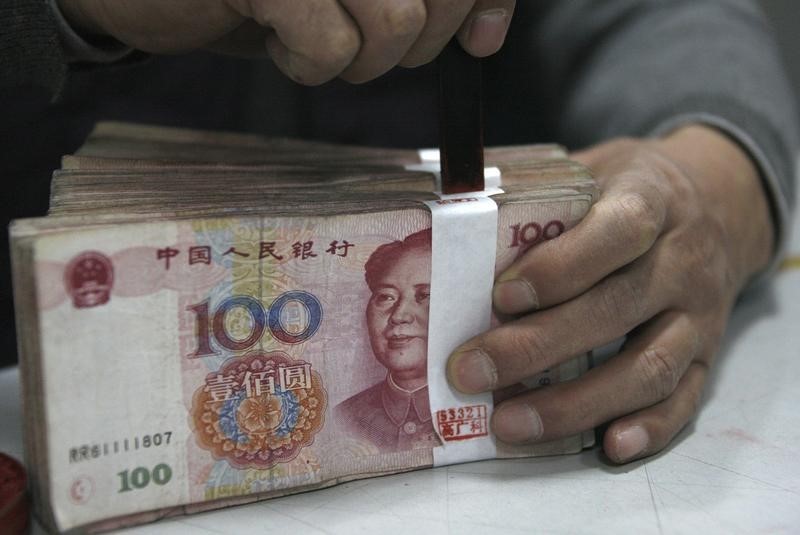SINGAPORE (Reuters) - China's vice president told Bloomberg News on Thursday that his government has no intention of devaluing the yuan.
"The fluctuations in the currency market are a result of market forces, and the Chinese government has no intention and no policy to devalue its currency," Li Yuanchao told Bloomberg in an interview on the sidelines of the World Economic Forum's annual meeting in Davos, Switzerland.
Li, who is also a member of the Communist party's Politburo, also put the blame for the volatility in the yuan on the U.S. Federal Reserve's first post-crisis rate rise in December.
The yuan's sharp swings this month have not only sparked capital outflows from China and a selloff in the stock markets but also stoked speculation China might once again devalue its currency, as it did in August 2015, to support a flagging economy.
China has come in for criticism that it has left markets confused about its policies, and occasionally its stated intentions such as keeping its currency stable have not always matched its actions.
International Monetary Fund director Christine Lagarde said at the World Economic Forum that China needed to communicate better with financial markets.
But Chinese authorities have consistently maintained they have the ability to keep the currency stable.
Chinese Premier Li Keqiang said in a meeting with the president of the European Bank for Reconstruction and Development the country does not intend to use a cheaper yuan as a way to boost exports and has the tools to keep the currency stable, state news agency Xinhua reported on Saturday.
Li also told Bloomberg that China was willing to keep intervening in the stock market. The market is "not yet mature," and the government would boost regulation to avoid volatility, he said.
